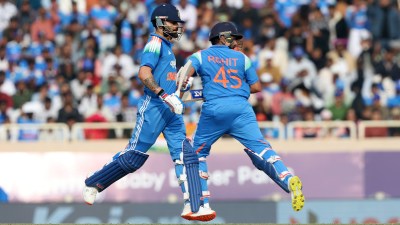Stay updated with the latest - Click here to follow us on Instagram
Muslim localities have little amenities, face heavy surveillance: TISS study
The study says that privatisation of space and diminishing community spaces in Mumbai has increased the levels of insecurity.
Stating that spaces in the city like Mumbra, Shivaji Nagar and Bhendi Bazaar bear testimony to the “othering” processes in Mumbai, where there is heavy surveillance but scarce provision of basic services, a study by the Tata Institute of Social Sciences (TISS) says that “demonisation of Muslims in the city is related to a global Islamophobic climate”, where Muslims are seen as terrorists, violent and bad citizens.
“These spaces have become known as areas where many Muslims resettled in the wake of the riots of 1992-1993, an event which changed the socio-spatial fabric of the city through a process of segregation and ghettoisation,” says the paper by TISS’s Centre for Urban Policy and Governance, School of Habitat Studies, which is part of a three-year research project titled “people, places and infrastructure: countering urban violence and promoting social justice in Mumbai, Durban and Rio de Janeiro”.
It says that while after the riots, the pervasive feeling among Muslims was that they were not safe anywhere in Mumbai, a decade later, towns like Mumbra showed that Muslims have increasingly come to believe that it is better to live together. “The riots did not merely create physical boundaries, but also resulted in a conceptualisation of the other, which in this case were the Muslims,” it says.
Talking of riots, from local to international terror links, the study stresses that the discourse on terror etched the Muslim youth as a figure prone to committing acts of violence and terror and contributed to the perpetuation of a cycle of multiple exclusions, including exclusion from jobs, buying and renting houses and lack of access to basic amenities.
The study further says that privatisation of space and diminishing community spaces in Mumbai has increased the levels of insecurity. “Incidents of terror and reported crimes have produced fear and have given rise to the privatisation of security and surveillance. Several neighbourhoods, schools and even streets have now installed close circuit television cameras. Investment in security arrangements and screening of prospective employees and tenants has intensified, while previously it had been negligible. In such a fragmented society, particular groups stand out as being particularly victimised and these are women and Muslims,” it says.
“Even today, Muslim-dominated areas like Govandi and Dharavi haven’t seen the kind of development that should have taken place. Despite such progress in Mumbai, Muslims continue to be discriminated against in many areas. There’s also a fear psychosis among the Muslim youth and they feel that even if they study and get educated, they will face discrimination in jobs. No matter who is running the government, equal opportunities need to be provided to all in jobs and education,” says activist Dr Azimuddin, president of an outfit named Movement for Human Welfare.







